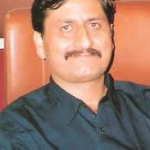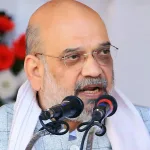Books are the proverbial windows to the world, which have no other equal so far since the time they were invented in the form of earliest handwritten scrolls created around 500 BC. The earliest printed books were created in China around 868 AD. The modern book, with pages bound together, originated in the Roman Empire around first century CE. The earliest books were scrolls as mentioned above by me and made up from ‘Papyrus’, a paper like material made from reeds. ‘The Diamond sutra’, a Buddhist text is considered the world’s oldest printed book created in China around 868 AD.
In the Indian context, our centuries old ‘Ved- Purans’ were too recorded in handwritten mode with the ‘Birch bark’ ( Bhojpatra) , palm leaves etc making the background for such ventures. The later centuries saw more and more advancements in book printing with the advent of the typewriter, printing press and the like. The most revolutionary thing to happen with the book world was the concept of ‘e-books’ that can be traced back to the early 1970s, when Michael Hart started ‘Project Gutenberg’ in 1971 , digitizing the ‘Declaration of independence’.
While the idea of electronic books existed before too, but ‘Project Gutenberg’ is often considered as the beginning of the e-book movement.In fact books are the true friends of the people, rather than fair weather friends which we all meet every other day. Books are the ideal partners in an individual’s solitude too. In our own Indian context, books formed the greatest of companions of our freedom fighters even in the confines of jails like the Naini, Yerwada, Almorha or for that matter Ahmednagar for leaders like Nehru & Mahatma Gandhi and the ilk. Best of works of these leaders like the ‘Letters from a father to his daughter’, Discovery of India etc were the products of the solitude afforded by these Jails.
Be that as it may, since the time the digitization of the entire gamut of things in the world started with the book world too not left untouched, a flip side to this noble world was the decreasing momentum that was being generated by the books worldwide in the younger lot .May be the decreasing ‘attention span’ of the masses were believed to be cause of the books being relegated to a secondary position vis-a-vis the silver screen or the computer screen. An immediate ‘sense of gratification’ that was the ‘sine quo non’ of digital world too was behind this decreased interest in books by the people and the younger lot in particular.
In order to obviate the above side effects, UNESCO started the idea of celebrating ‘World book & Copy right day on 23 APRIL 1995. It was initiated by the world body of UNESCO with the avowed aim of promoting reading, publishing and copyrighting in the book world among all sections of the populace , but targeted more towards the younger lot; the most impressionable lot of the people with a high sense of adrenaline flowing in their sinews to effect changes the world over.
In fact ‘World Book Day’ provides fantastic opportunity to focus on ‘reading for pleasure’, supporting the younger people’s autonomy in book choice thereby embedding a habit book reading that brings a wide range of benefits in one’s life time. There is no denying the fact that the habit of early reading in life will leave everlasting impressions on the readers as they grow old , helping them ‘Chew the cud’ of life that was portrayed to them via the pages of the books.
The various facets of events in life, and their impacts on our psyche gets more grounded/ validated when we realize that we had already read them in some or the other books that we managed to lay our hands on in the past. And hence making us believe in the universality of some of the best teachings that lie buried in the recesses of these books.
This day of 23rd April every year is also celebrated and dedicated to paying respects to renowned authors, writers including William Shakespeare, Miguel Cervantes, and Inca Garcilaso de la Vega who died on this same day. Last year the beautiful city of Strasburg , with its rich history and cultural heritage had been recognized as UNESCO’s ‘WORLD BOOK CAPITAL’ for 2024.
This year the city of ‘Rio de Janerio’ has been designated by the UNESCO as world book capital for its awesome literary heritage, vision for promoting literature, sustainable publishing, and reading among young people. This designation by UNESCO marks first time a Portuguese –speaking city holding this title. The director-General of UNESCO Mr Audrey Azoulay has said that the city of Rio de Janerio conceives the project of ‘World book day-2025’ in totality plus having the ability of undertaking social change-through, for example literacy, education and poverty eradication – and bring about sustainable economic benefit linked to the UN’s SDGs( Sustainable development goals).
Quoting the DG (Director General) verbatim last year—‘Books are vital vehicles to access , transmit and promote education, science , culture and information worldwide. Thanks to the books, we keep ourselves informed, entertained, and are able to better understand the world. That is why, each year UNESCO designates a world book capital. After ‘Accra’ in 2023, and Strasburg in 2024, I am pleased to announce the designation of Rio de Janerio’ as ‘World book capital’ for 2025’ –unquote.
Now how exactly is this WBD (World Book Day ) celebrated all over the globe? Well, in North America this day is rung in diverse ways through an equally plethora of diverse events and activities. These include book fairs, and various authors visiting to schools of higher learning just to share their writing experience and become a guiding light for budding writers in schools and Colleges.
When it comes to the European continent, the event is marked albeit mixed with both love for the culture of the country of celebration as well as indulging in a freewheeling of gifts, flowers etc. In particular Spain, the Spaniards indulge in celebration of ‘La Diada de SantJordi’ that is marked by the above mentioned actions as stated previously viz exchange of roses, gifts, books etc as a token of love and gratitude .
In England, ‘World book night’ is rung with an event where volunteers distribute free books to promote reading. Coming to the Asian continent, this seminal day is celebrated in India in the form of various ‘book fairs’ notably the ‘Delhi Book fair’ that is held in the national capital and often inaugurated by the president of India. This year, NDWBF (New Delhi book fair) was held from 01 to 09th February 2025 with the central theme being ‘Republic @75. Organised by the NBT (National book trust of India) under the aegis of ministry of education , and co-organised by ITPO ( India trade promotion organization), ministry of commerce the event was graced by the first citizen of India Mrs Droupdi Murmu .
More than 2000 publishers and exhibitors with pan India authors, speakers and book launches were the center of attraction at NDWBF-2025. In China & Japan, book related exhibitions and events promoting both traditional and contemporary literature, as well as signing by popular authors and special book releases are undertaken respectively. In the African & south American continent , lively book exchanges, and public readings in countries like Kenya and Nigeria as well as Argentina and Brazil promoting both national and international works are encouraged on this august day. In North America, the USA observes the day with typical ‘authors meet-and –greet’ as well as school book drives.
This day not only celebrates the importance of books amongst the populace of the world , but also lays special focus on an important facet with book publishing without which this entire exercise of WBD( world book day) will come to a naught. It is the importance of ‘Copy rights’ in the publishing world, without which no worthwhile genuine work of literary genius will come to the fore. Copy rights, which forms an integral part of the ‘Intellectual property rights” is that terms of reference which has within itself the intrinsic quality of separating the proverbial ‘wheat from the chaff’ i.e. real writers from the pseudo writers in the publishing world. It is that protective cover over the creator’s rights having original works which fosters innovation, and prevents unauthorized use or duplication/ plagiarism in the publishing world.
Copy rights provide exclusive rights to the creator of a literary work, including reproduction, distribution as well as creation of a derivative. Creators can financially benefit from copyrighted works, through licensing, royalties, and other revenue streams. This copy right act prevents thefts, piracy as stated above and to top it all if found breached by any pseudo writer, it has the legal recourse enshrined within itself.
Copy right also benefits and promotes creativity and innovation as well as gives the public at large an access to diverse range of creative works knowing very well that the masses will be exposed to a real dose of literary work , pure and unadulterated by any unauthorized writer of dubious intent.
How much emphasis India in particular lays stress on books and the role played by them in shaping the society as such can be gauged from the fact that the second president of India, Dr S. Radhakrishnan dedicated the ‘Vice regal lodge’ (presidential house) at Shimla ( HP) to the nation way back in 1964 by his directive that the stately estate be converted to IIAS( Indian institute of advanced studies) as a mark of repository of research in higher studies plus catering to knowledge of Indians in particular.
It has to be understood that no day can be given a heft and celebrated as a famous day catering to a particular theme, unless a mass participation of sorts is undertaken In this particular case, the whole hearted involvement of parents, teachers, students /young people and the literary giants of the ilk are a must to make the WBD a roaring success. With the younger lot increasingly getting away from the book world and glued to the razzmatazz of computer /digital world, time is ripe for us to veer them back to the wonders of book world.
(The writer is a retired army officer and a regular scribe of Rising Kashmir. He can be approached on his email: [email protected])








